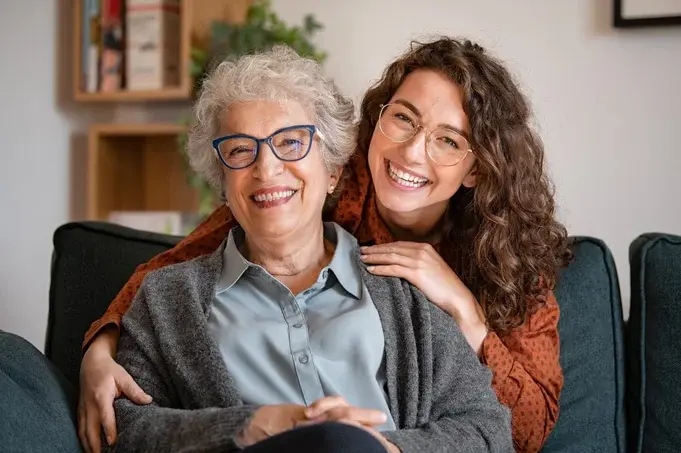Key Takeaways
- An understanding of the various senior care options is crucial for informed decision-making.
- Personalized care plans are gaining popularity as they cater to individual needs.
- Technology and policy changes play a significant role in shaping the future of senior care.
In an era of the aging population, the spotlight on senior care has become more pronounced. People who once led independent lives may need assistance, fueling the demand for diverse senior care options. The journey to find the most suitable care can be a difficult one. Here, we explore the myriad of senior care options available and dive into the considerations that influence these critical life decisions. Understanding these choices is imperative for seniors and the families and communities that support them.
Understanding Senior Care: Definitions and Options
The spectrum of senior care ranges from minimal intervention in the form of in-home care services to full-time residential care in assisted living facilities and nursing homes. In-home care allows seniors to maintain a sense of independence while receiving assistance with daily activities, such as meal preparation and medication management. While nursing homes offer more advanced medical care for patients with more serious medical conditions, assisted living facilities provide a structured setting with access to health services. Moreover, there’s a growing interest in technology-assisted living, which employs innovative solutions to facilitate independent living and wellness for seniors. Still, valuable information is available on dedicated resources like this website that can provide insight into making the best choice for one’s circumstances.
Factors Influencing Senior Care Decisions
Several factors influence the type of senior care that families and elders choose. Family dynamics can be one such factor, as the level of involvement and support from relatives often determines the feasibility of home care. Since the cost of care might differ significantly between possibilities, economic considerations also play a significant role in these selections. Furthermore, each senior’s unique healthcare and personal needs dictate the extent and type of care required. As every old’s situation is individual, these factors should be carefully balanced to make the most appropriate and beneficial choice for their quality of life.
The Shift Towards Personalized Senior Care Plans
Customizing senior care to fit the individual needs of each person has become an essential movement in the industry. This method recognizes that there is no one-size-fits-all solution for elder care. Some older adults choose alternative living arrangements, such as senior co-housing, allowing them to live among peers while retaining autonomy. Others may select community-based programs that provide social engagement opportunities alongside assistance with daily tasks. These personalized care solutions ensure seniors receive the care they need and the quality of life they deserve.
The Impact of Legislation and Policy on Senior Care
The landscape of senior care is profoundly influenced by legislation and public policy, which set standards for safety, accessibility, and quality of care. Eldercare policies are continually updated and refined in response to demographic shifts and societal needs. One key area of focus is creating and enforcing advanced care directives, which empower individuals to decide about their future care preferences.
Challenges and Solutions in Senior Care Staffing
The demand for skilled caregivers outpaces the supply, creating a staffing crisis in the senior care industry. Addressing this challenge requires innovative strategies for workforce development. These strategies include offering competitive compensation, developing mentorship programs, and providing ongoing training opportunities to encourage career growth in the long-term care sector. Emphasizing the importance of this work and its societal value can enhance the appeal to new entrants into the caregiving profession.
Cultural Sensitivity and Diversity in Senior Care
Diversity is an intrinsic part of our society, and senior care must cater to various cultural backgrounds. Providers need to display cultural sensitivity and include respectful practices and understanding of the different values, beliefs, and traditions of the seniors they serve. Implementing culturally competent care promotes inclusiveness and ensures that all seniors receive dignified and personalized support regardless of their background.
Advocacy and the Rights of Seniors
The rights of seniors are paramount in ensuring they receive the highest quality of care. Advocates serve as the voice for older people, particularly those who cannot speak up for themselves. Understanding the rights of seniors is imperative, whether it involves legal and healthcare decisions, protection against abuse, or simply receiving courteous and respectful treatment. Family members, care professionals, and communities uphold these rights and advocate for the best possible outcomes.
Navigating Mental Health and Wellness in Elder Care
It is crucial to realize that overall welfare depends on both physical and mental health, especially for older persons who may be more prone to isolated or gloomy thinking. Integrating mental health services and resources into senior care programs is critical to addressing these challenges. Activities that promote social interaction, exercises that foster cognitive health, and access to mental health professionals are essential components in providing a well-rounded and supportive care environment.










Hello!! My name is Annabella
I love to eat, travel, and eat some more! I am married to the man of my dreams and have a beautiful little girl whose smiles can brighten anyone’s day!